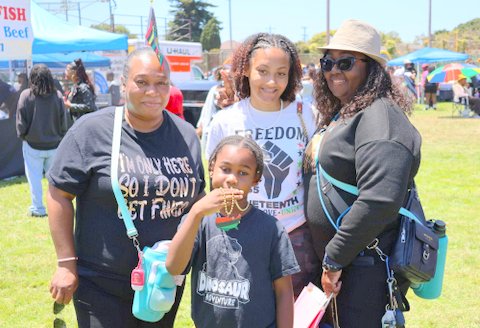
24 Jun Richmond Celebrates Juneteenth, Black Businesses and Culture

Richmond celebrated Juneteenth, which marks the day that last enslaved people in the U.S. were freed, on Saturday at Nicholl Park.
Photo essay, Joe Porrello
Thousands of people gathered at Nicholl Park on Saturday for Richmond’s free annual Juneteenth Celebration, an event that commemorates the end of slavery in the United States and honors Black culture and freedom.
Eight hours in total, the festivities began with a parade at 10 a.m. from Kennedy High to the park. There, attendees could browse booths and try out food trucks from Black-owned businesses, see over 20 local Black performers, and view cultural exhibits.
- Each musical performance featured a different genre or different instruments.
- With two performance stages at opposite ends of the festival, attendees heard music no matter where they were.
Sponsoring the event were the city of Richmond, the Neighborhood Block Association, OTB Music, Kaiser Permanente and Chevron.
One of the celebration’s head coordinators, city Crime Prevention Manager Michelle Milam, says the planning process was done by community members in collaboration with the city — which has been the case since Richmond’s first Juneteenth festival in the 1980s.
For about 40 years — not including a stretch in the early 2000s in which the event was canceled due to a lack of city funding — the celebration has been one of Richmond’s biggest events. Though, recently, it has seen a drop in participation.
Milam, who lives in Richmond and grew up going to Nicholl Park, attributed the smaller crowds of late to lingering effects of COVID-19 making people uncomfortable around large crowds.
“It’s been a long time since Richmond had a big Juneteenth celebration, so I was excited for this,” said 27-year-old Andreanay Henry. She is a hairstylist across the street from the park on Macdonald Avenue at Beautiful Rebel Aesthetics, which had a booth at the festival. Henry also brought along her three stepsons and two nieces, ages 3 to 10.
- Andreanay Henry brought her two nieces and three stepsons — all of whom got their faces painted — to enjoy the same celebration she attended as a child.
She reflected on her young family getting a chance to have the same experience she had as a child celebrating Juneteenth at Nicholl Park.
“It makes me so happy. It’s nostalgic for me,” Henry said. “I was just telling them on the ride here that when I was younger, I used to love Juneteenth and how I hoped they had the bouncers they used to have.”
Along with a bouncy house and slide, the youth zone featured activities such as four-way volleyball and a high striker for all ages to enjoy.
- Children played for hours on an inflatable slide and an inflatable obstacle course.
- Some young attendees showed off their strength by taking a shot at the high striker.
- A four-way volleyball net provided a twist on the typical game.
- Kids were able to throw baseballs and footballs and shoot basketballs.
Henry also noted the loving atmosphere.
“I know that the Juneteenths here used to get a little rowdy — this is the first one I’ve seen that’s been super peaceful,” she said.
- Sam, left, and Charlotte, both 17, and 15-year-old Magic, center, were at the festival as counselors for Today’s Youth Matter, which helps uplift urban youth in Richmond through camps, field trips, and mentorship.
Milam says it makes her “very happy to see people feel comfortable coming together as a community, being resilient, focusing on how we can care for one another and supporting local businesses.”
The celebration of local Black-owned businesses and performers, Henry said, goes a long way in making residents proud of where they’re from. “It just shows there’s a lot going on in our community,” she said.
- Different performers graced a pair of stages for hours at the Richmond Juneteenth Celebration.
It also helps performers, vendors and retailers gain exposure — as Henry added that gentrification forces Black-owned businesses into less noticeable or less desirable “hole in the wall” locations.
One retailer showcasing their merchandise was 42-year-old Bau Fal, who moved to the Bay Area last year from Senegal with his brother Libasse. Fal says they are trying to spread their culture — while also making a living — by selling traditional Senegalese clothing and jewelry featuring vibrant colors and intricate patterns.
Having gone to lots of festivals as a child in Africa, Fal says he enjoys being at events like Saturday’s even if he has to work.
- Bau Fal organizes merchandise at the mobile booth he and his brother started after coming from Senegal in 2024.
Austin Williams, a 36-year-old Richmond native also known by his stage name, Doc Dolla, said he would have liked to see more young people at the event in addition to “the older crowd holding on to what they started.”
“Everybody is family… we’re all from this city and need to stick together, which takes getting involved,” Williams said. With him at the event was the youngest of his six children, 1-year-old Lyric.
- Austin Williams, a.k.a. Doc Dolla, enjoyed the day with the youngest of his six sons, 1-year-old Lyric.
Some youth participated in a talent show with dances, singing and more. Select performers as well as parade entries took home trophies in different categories.
Performing her own rap music was 13-year-old Mymy Gardner, who said she was excited to do a set in her home city of Richmond for the first time. Having shows for about two years in places like Oakland and San Francisco, this was the one she most looked forward to.
- Mymy Gardner, age 13, performed rap songs and had her mother, Mia Coleman, in attendance for support. Coleman raps herself under the name Ms. Mia.
One of the two performance stages was headlined by the 3TOB band, featuring the founding members of Tony! Toni! Toné! Broadcasting live on site was radio station 106.1 KMEL.
Some enjoyed the festival from afar as part of a small impromptu car show of sorts featuring about a half-dozen cruisers.
- Mel Navarro and his daughter made Richmond’s Juneteenth Celebration one of their stops on a drive through the East Bay on Saturday.
- One festival attendee parked his award-winning cruiser outside before enjoying the celebration with his family.
- Some cruiser cars parked outside the festival donned festive Juneteenth decorations, like the window flag on this drop top.
The festivities and celebration, Milam says, are what Juneteenth is all about.
On June 19, 1865, Union troops told more than 250,000 Black formerly enslaved people in Galveston Bay, Texas, that they had been freed — the last to be liberated two years after the Emancipation Proclamation. That day came to be known as “Juneteenth.”
“Fighting for that freedom and those enslaved in Galveston to be able to learn of their freedom two years later, meant they finally got to experience what we call our Constitution and our Bill of Rights and our Declaration of Independence, and we need to celebrate that — especially in these times when some of those freedoms are being threatened,” she said.
Since taking office in January, the Trump administration has targeted Black Americans by removing Black Lives Matter murals, signing an executive order limiting funding for the National Museum of African American History, removing Black historical figures from national websites, reducing Department of Education funding for Historical Black Colleges and Universities, and rolling back diversity, equity and inclusion programs.
- A plaque at Nicholl Park baseball field honors San Francisco Giants legend Willie Mays, whose Say Hey! Foundation and Willie Mays Scholars program both support local Black youth.




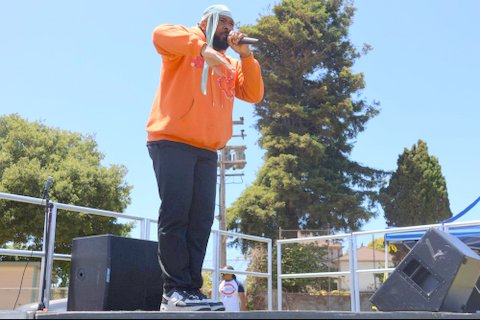
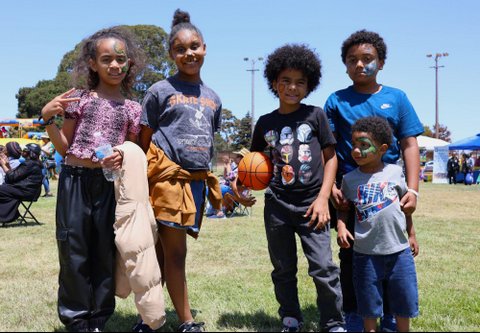
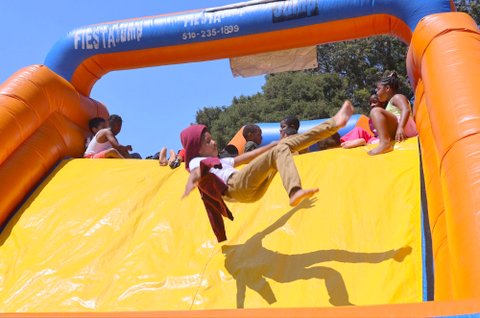
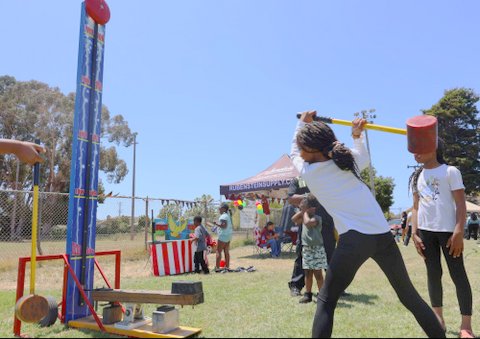
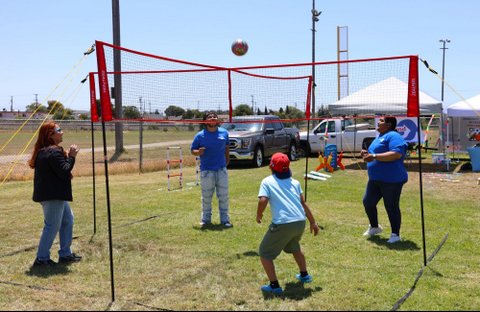
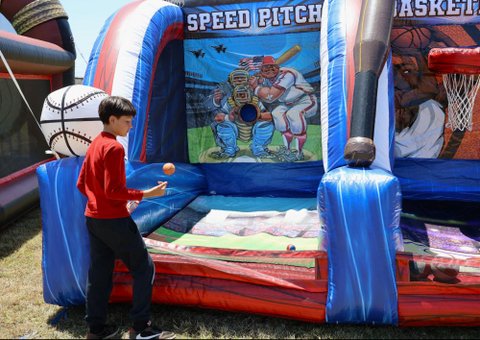
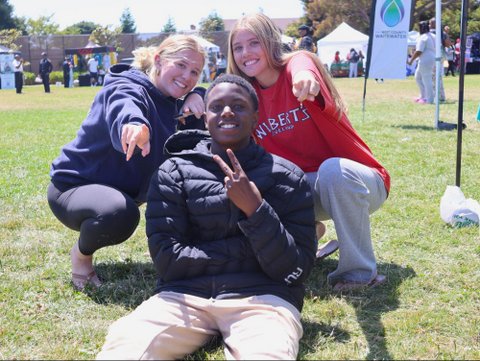
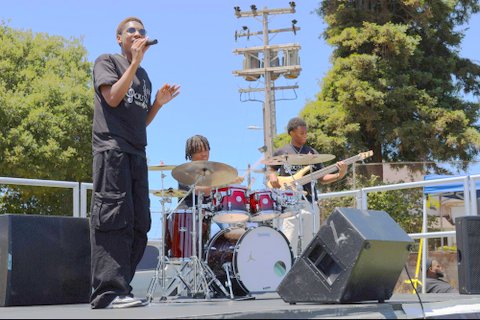
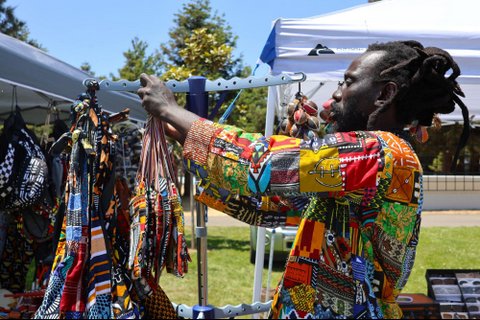
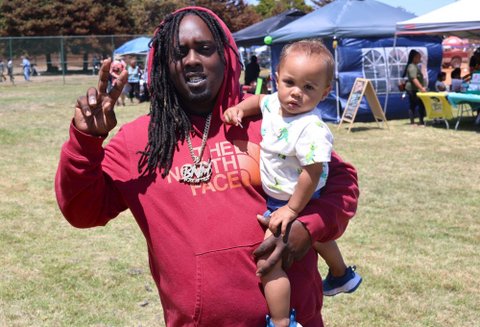
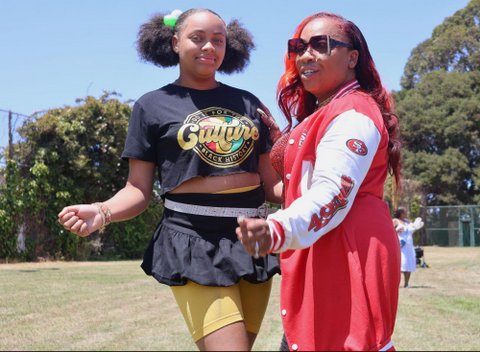
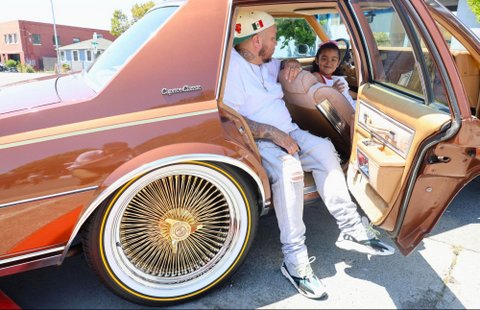
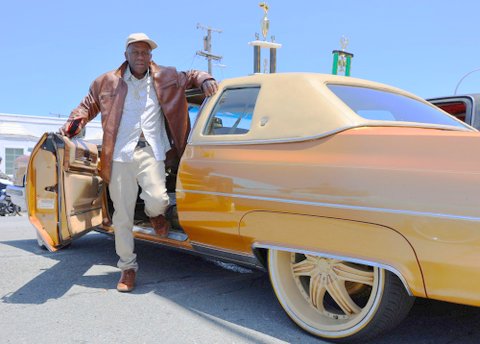
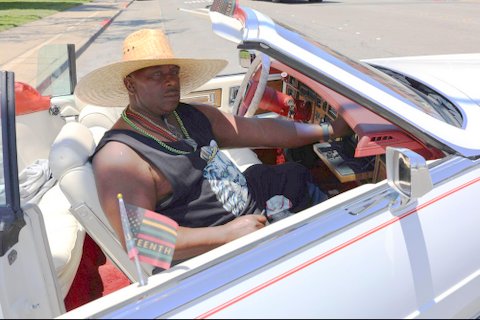
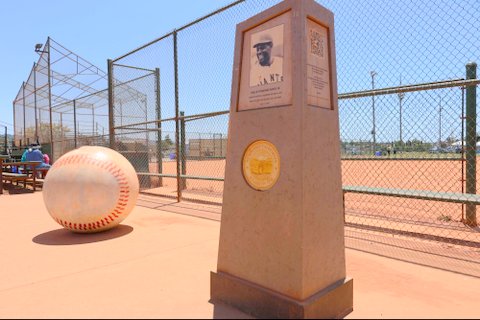



No Comments